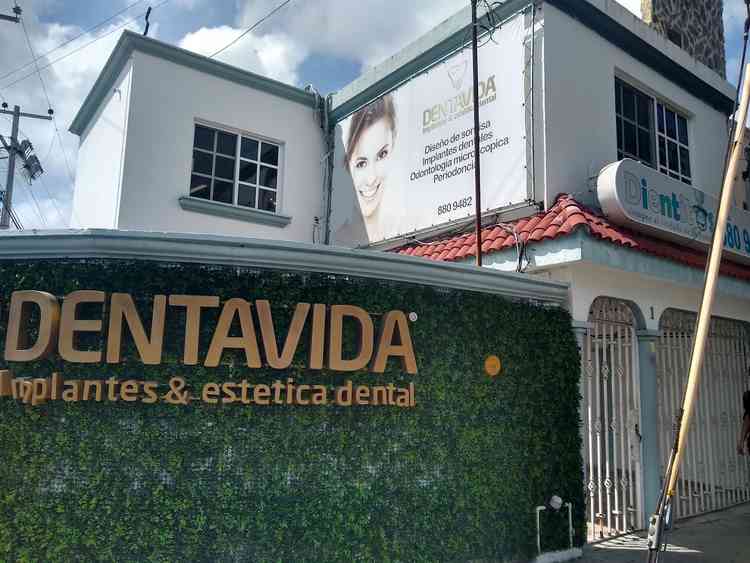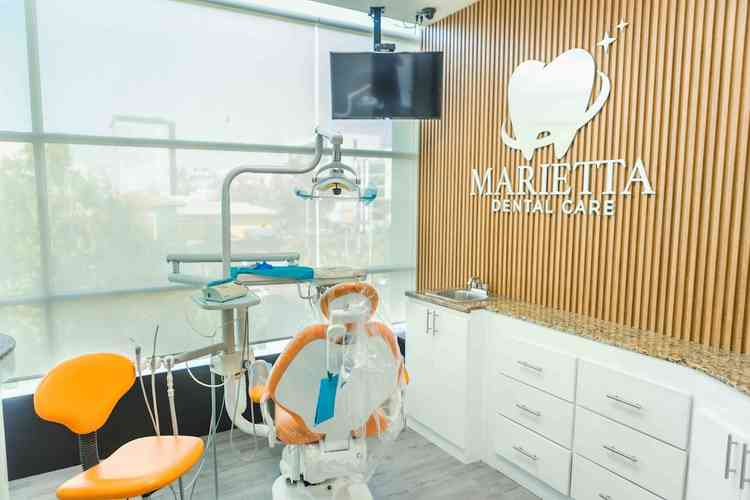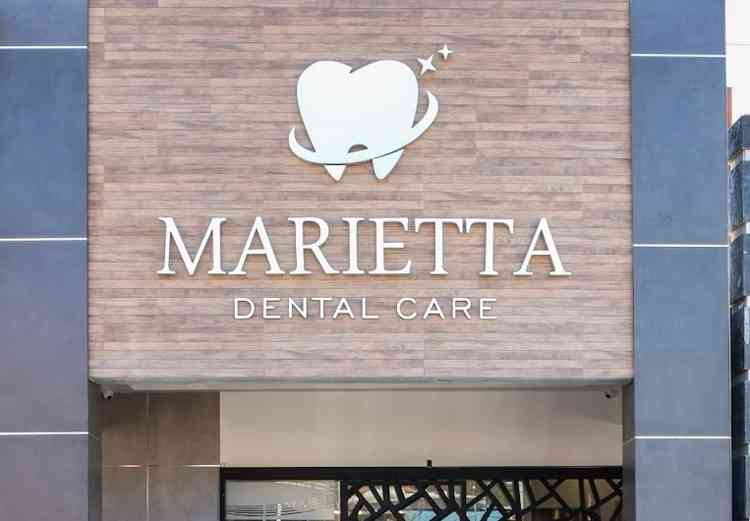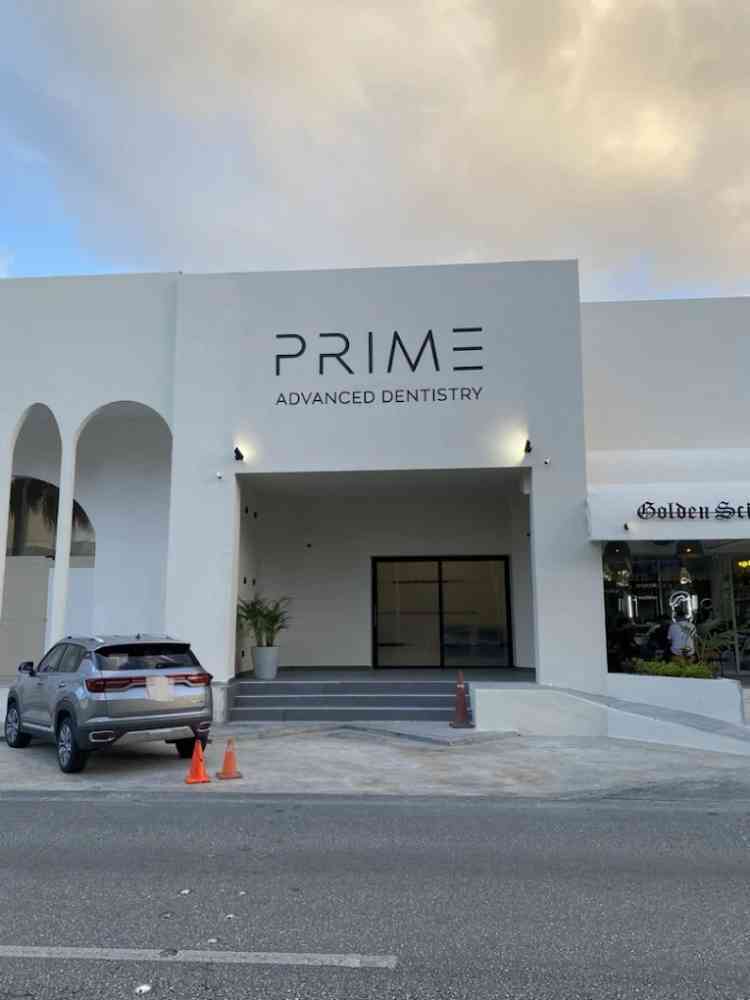The Truth About What Happens to Your Teeth Underneath Veneers

Prathyusha Itikarlapalli
- Content Writer

Gustavo Moreno Vargas
- Reviewed by

Table of contents
- Why Dental Veneers Are Becoming So Popular?
- Common Dental Issues Veneers Can Fix
- Potential Downsides of Getting Veneers
- What Happens to Your Teeth When You Get Veneers?
- Appearance of Teeth Under Veneers
- Can Teeth Decay Beneath Veneers?
- Warning Signs Your Teeth Under Veneers May Be Damaged
- Effective Ways to Clean the Teeth Under Veneers
- Alternatives to Veneers
Key Takeaways
- Dental veneers are slim coverings made from porcelain or composite resin, used to cover the tooth's front surface. Their installation requires some amount of enamel removal to create room for veneers and avoid a bulky appearance.
- Enamel is the tooth’s hardest portion and carries protective functions. Tooth enamel loss is permanent and makes them prone to sensitivity, gum issues, and decay.
- Teeth after veneer removal appear dull, rough, and small in size due to enamel scraping. Veneer replacement can cover these issues, offering a clean smile. While some opt for no-prep veneers, prioritizing oral hygiene remains crucial for long-term dental health and veneer success.
A Growing Trend of Dental Veneers
The desire for a perfect smile is not new. But with social media and celebrities showing flawless teeth everywhere, more people are choosing cosmetic dentistry procedures.[1] Tooth chips, breaks, malalignment, and discoloration can ruin the overall smile, with an uneven look that compromises the aesthetics. Dental veneers are now a popular way to fix chipped, crooked, or discolored teeth and get a confident, bright smile. These are custom-crafted, thin shells fixed on the front surface of your natural teeth. Veneers cover the imperfections due to uneven teeth, creating a more balanced and proportional smile. Moreover, being tooth colored, they seamlessly offer a natural look to your smile and are most often opted for in a smile makeover.
How Much Do Veneers Cost?
Tooth veneers cost between $600-$2,500 per tooth, depending on the material, city, and dentist you choose. Generally, porcelain veneers cost more than composite veneers. Further, planning veneers in top countries such as Mexico and Turkey will offer considerable savings on overall treatment. It's worth mentioning that the treatment cost for a smile makeover with veneers depends on the number of veneers, as the charges are quoted per tooth.
Are Veneers Permanent?
Veneers are not permanent and require replacement after 15-20 years. However, this should not be confused with the irreversible impact that the veneer procedure creates on natural teeth. Scraping enamel cannot be reversed due to its inability to regenerate.[2] You will require new veneers to replace the older ones after the stipulated lifetime.
How Long Veneers Last?
Veneers typically last between 15-20 years, depending on the material used and how well you care for them. Porcelain veneers generally outlast composite ones due to their strength and durability. However, habits like teeth grinding or clenching can increase the risk of veneer failure. Most importantly, poor oral hygiene can make veneers more prone to damage, reducing their lifespan.
What Problems Do Dental Veneers Solve?
Dental veneers are for correcting tooth problems, including chips, cracks, stains, gaps, minor misalignment, and worn-down or misshapen teeth. Note that veneers are never a substitute for orthodontic braces in correcting alignment problems. Veneers only mask the flaws, delivering a balanced look. Major malalignment issues require orthodontic braces or clear aligners. Every medical or dental procedure has its pros and cons. While veneers offer a picture-perfect smile with a simple procedure, they do carry some drawbacks.
Why Veneers Are Bad?
Here are the problems of getting dental veneers:
- Tooth preparation involves the permanent loss of enamel, which does not regrow.
- Loss of enamel can lead to sensitivity issues when eating hot and cold foods after the procedure.
- Veneers are delicate and prone to chipping and breaking.
- Alignment issues and rough edges due to fabrication and crafting errors.
- Gum problems and tooth decay of shaved teeth under veneers.
While you may be concerned about the procedure, we elaborated on it below.
What Happens to Your Teeth When You Get Veneers?
Dentists remove a portion of the enamel, the top layer of the tooth surface, as the initial step of your veneer procedure. This will, in fact, create room for the upcoming veneers. Without this step, even thin veneers can feel bulky or unnatural. Next up, they collect impressions for veneer fabrication. And once the veneers are ready, dentists fix them on the tooth surface using dental adhesive.
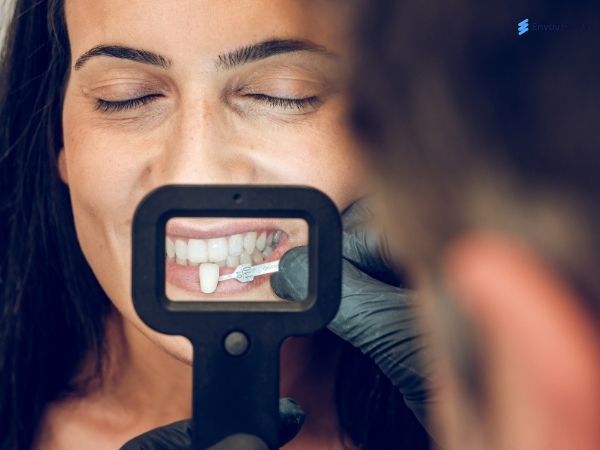
What Do Teeth Under Veneers Look Like?
Teeth under veneers appear slightly dull, rough, and smaller than their original state. Enamel is the hardest outer layer, protecting the interior sensitive parts. Losing it makes the shaved teeth under veneers less opalescent with a lost shine. You don't have to worry about the appearance. The veneers act as shells covering these minor flaws. In fact, proper enamel removal offers a balanced look. It helps the veneers blend seamlessly with your teeth while keeping your smile comfortable and natural-looking. And if you are concerned about the strength, worry not, as losing a layer of enamel does not make your teeth weaker.
What Happens After Veneers Are Removed?
The teeth after veneers removed do not appear natural. They look dull, rough, and smaller in size. So, you will need a new set of veneers to cover those small, dull-looking natural teeth to restore a shiny smile.
Can You Get Veneers Without Shaving Down Teeth?
You can consider no-prep veneers if you are concerned about teeth shaving for veneer installation. These are the ultra-thin porcelain shells that are bonded on the front surface of the tooth without shaving off enamel.[3] However, they carry certain drawbacks such as:
- Being too thin and ineffective in masking major stains and discoloration.
- Suitable only for minor cosmetic issues like chips.
- Not suitable for teeth that are too crowded or severely malaligned.
Do Teeth Rot Under Veneers?
The shaven teeth under veneers do not rot when the veneer procedure is carried out properly, and oral hygiene is taken good care of. Certain conditions create an ideal space for plaque build-up and bacterial growth on the surface between the veneer and the prepared tooth surface. We listed them below:
- Chipped, broken, or cracked veneers can leave space for bacteria to seep underneath the surface.
- Veneers improperly bonded to the tooth surface may gradually become loose, creating space for plaque build-up.
- Improperly fabricated veneers with rough edges, as well as those with inappropriate fit, leave margins open for plaque formation and tooth decay.
- Gum recession due to a wrong fit exposes the tooth roots, posing a risk of dental cavity formation.
- Compromised oral hygiene causes plaque formation, where trapped food serves as an immediate food source for flourishing bacteria, fueling the cavities.
Signs That Your Teeth Under Veneers Are Rotting
Don’t ignore the following symptoms, as they are key signs of tooth decay under veneers.
- Tooth sensitivity, along with pain and discomfort when consuming hot, cold, or sweet foods.
- Discoloration with dark spots and stained edges along the veneer lining touching the tooth surface.
- Gum inflammation with red, sore, and swollen gums.
- Pain and discomfort in the tooth or gums when you bite down on food.
- A sense of bad taste and breath, indicating an underlying decay or infection.
How Do You Clean Your Teeth Under Veneers?
Maintaining strong oral hygiene is the most effective way to clean teeth under veneers. This will prevent decay and unnecessary complications, ensuring both natural teeth and veneers function properly for years after.
- Use a soft-bristle toothbrush and brush the teeth gently twice a day. Make circular motions at 45° along the gum line, avoiding harsh, scrubbing, and back-and-forth brushing.
- Hard bristles can damage the veneers by scraping them and giving a dull look. Avoid abrasive toothpaste as well.
- Use alcohol free mouthwash to eliminate germs and bacteria from the oral cavity. Using mouthwashes containing alcohol will dissolve the adhesive binding veneers to the teeth. This can weaken the bond and can lead to veneer displacement.
- Floss regularly, using waxed floss in a curved C-shape. This will prevent plaque from forming below the gumline and help prevent tooth snapping.
Besides, keep an eye on what you eat. Avoid staining drinks like red wine or blueberries, and hard foods like nuts and crackers that may potentially damage the veneers. Avoid citrus fruits, soda, and vinegar. These may damage the teeth under veneers as they lack enamel.
Alternatives for Patients Who Don’t Want Enamel Removal
One can go for no-prep veneers to avoid enamel removal. However, this applies solely to the slightest cosmetic flaws, such as minor chips or stains. On the other hand, dentists recommend the following treatments as alternatives to the veneers if you are concerned about the adverse effects of enamel removal.
- Teeth whitening is ideal if your cosmetic concerns are staining and discoloration.
- Clear aligners are ideal for individuals with overcrowded teeth and a lack of proportion.
- Porcelain or zirconia dental crowns for teeth that are cracked or weakened and are liable to break.
Get a comprehensive diagnosis and understand the pros and cons, along with the cost aspects, to make an informed decision. Consider the long-term impact, the lifetime of the treatment, and the lifestyle factors that influence the durability of treatment. This way, you can choose a treatment that not only enhances your smile but also protects your oral health in the long run.
Final Word!
What happens to teeth under veneers often raises concerns, but the truth is that when done by an experienced dentist and maintained with proper care, veneers are safe and long-lasting. A thin layer of enamel is removed, yet your natural teeth remain protected and functional beneath. By following good oral hygiene, avoiding harmful habits, and getting regular dental checkups, you can enjoy the benefits of veneers for many years without compromising your dental health.
Thinking about getting veneers abroad? With Envoy Health, you don’t have to make the decision alone. Our team connects you with carefully vetted clinics, experienced dentists, and transparent treatment plans so you know exactly what to expect. From understanding costs to arranging your appointments, we make the process simple and stress-free. Sign up today to get expert guidance and take the first step toward a safe, affordable, and confident smile.
References
Disclaimer
The information in this article is for educational purposes only and does not replace medical advice. Always consult your doctor before starting any treatments.
Teeth under veneers lack enamel due to preparation and are generally prone to sensitivity and acid attacks. While the teeth under veneers remain strong and durable, conditions of lacking oral hygiene can increase the risk of cavities.
The veneers can probably develop chips and breaks 15 years after getting them. They may lose their luster, get stained, and wear over the years. However, this cannot be the case for every candidate. Maintaining consistent oral hygiene and attending regular dental visits can help prolong their life by 20 years.
Some dentists advise against veneers because of the irreversible effects associated with the dental veneer procedure. Enamel loss has several negative effects on oral health in the long term. It can cause tooth sensitivity, inflammation of the gums, and dental decay. Further, the longevity of veneers relies on the aftercare you follow. You should avoid hard and staining foods to ensure the durability of your natural teeth and veneers.
The dark side of veneers is their expensive price tag and permanent impact on the natural teeth. While veneers come at higher prices, they are purely for aesthetic purposes and offer the least benefit to oral health. Moreover, lack of maintenance and inability to attend routine dental visit can increase the risk of oral health issues.
So, we partner with the premier healthcare facilities!
Send me the list
